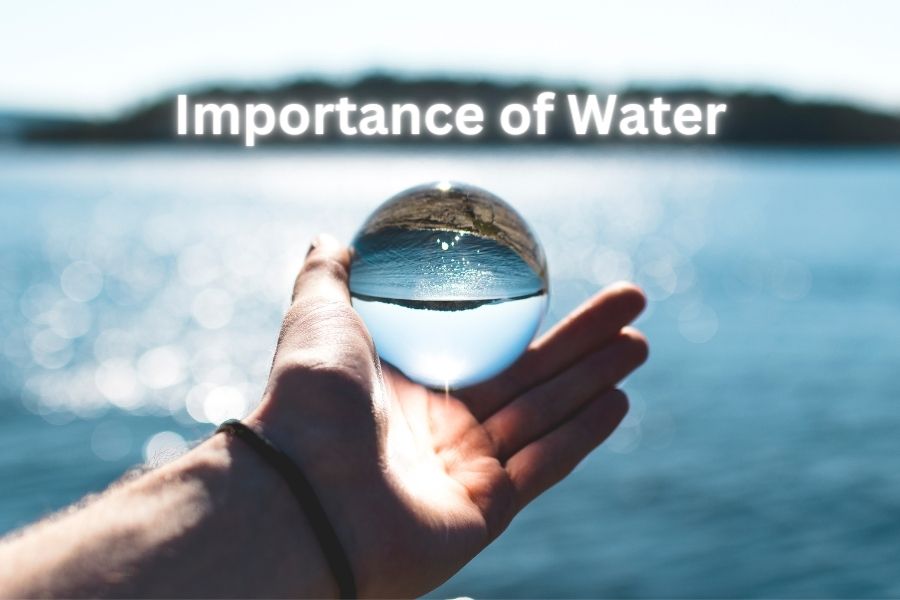Water is more than just a drink — it’s the foundation of all life on Earth. The importance of water lies in its role in sustaining living organisms, supporting industries, driving energy production, and maintaining human health. Without clean and reliable water sources, life as we know it would not exist.
Importance of Water in Our Life
Water is the building block of life. It enables essential chemical reactions, transports nutrients within cells, and regulates temperature in living organisms. In plants, water is vital for photosynthesis — the process that forms the base of the food chain and produces oxygen for all living creatures.
Importance of Water in Industries
Water drives global industries:
- Agriculture: Irrigation ensures steady crop yields and food supply.
- Manufacturing: Water is used for cooling, cleaning, and production in sectors like textiles, pharmaceuticals, and mining.
- Energy: Hydropower harnesses flowing water to generate renewable electricity, reducing dependence on fossil fuels.
Importance of Water for Human Health
The human body is about 60% water, making it essential for:
- Digestion and nutrient absorption
- Blood circulation and oxygen delivery
- Waste removal through urine and sweat
- Joint lubrication and muscle function
Even mild dehydration can cause fatigue, headaches, and reduced concentration, showing just how critical water is to daily well-being.
Environmental Importance of Water
Water supports ecosystems and biodiversity. Rivers, lakes, wetlands, and oceans provide habitats for countless species and help regulate the Earth’s climate. Wetlands also act as natural filters, removing pollutants and improving water quality.
How to Protect This Vital Resource
- Conserve daily: Fix leaks, use water-efficient appliances, and avoid unnecessary waste.
- Prevent pollution: Dispose of waste responsibly and limit the use of harmful chemicals.
- Support policies: Advocate for water protection, recycling, and sustainable infrastructure.
Read this also: How much water on earth is freshwater?
Frequently Asked Questions – FAQs
What are the uses of water?
Here are ten common uses of water,
Drinking and hydration – Water is essential for human survival, and we need to drink it daily to maintain our health.
Cooking – Water is used in cooking to boil, steam, or simmer food.
Agriculture – Water is vital for irrigating crops and ensuring food security.
Industry – Water is used in manufacturing and production processes, such as cooling and cleaning machinery.
Bathing and personal hygiene – Water is used for bathing, washing hands, brushing teeth, and other personal hygiene activities.
Recreation – Water is used for swimming, fishing, boating, and other outdoor activities.
Power generation – Water is used to generate hydroelectric power in dams and power plants.
Cleaning – Water is used for cleaning dishes, clothes, homes, and public spaces.
Firefighting – Water is used to extinguish fires.
Medical uses – Water is used in hospitals for various medical procedures, such as dialysis and sterilization.
Why is water called the universal solvent?
Water is called the universal solvent because it can dissolve more substances than any other liquid. This property is essential for transporting nutrients and minerals in plants, animals, and humans, highlighting the importance of water in life processes.
How does water help in regulating body temperature?
Water regulates body temperature through sweating and evaporation. This cooling mechanism prevents overheating and maintains balance in the body, proving the health importance of water.
Why is clean water important for the environment?
Clean water keeps ecosystems healthy by supporting plant and animal life, preventing pollution buildup, and sustaining biodiversity. Protecting water quality is a crucial part of preserving environmental balance.
What are the main uses of water in daily life?
Water is used for drinking, cooking, cleaning, bathing, irrigation, manufacturing, and energy generation. These multiple uses show how deeply the importance of water is woven into daily living.
How can individuals contribute to water conservation?
Simple steps like turning off taps when not in use, repairing leaks, using low-flow fixtures, and collecting rainwater can significantly reduce water waste, ensuring a sustainable supply for the future.




